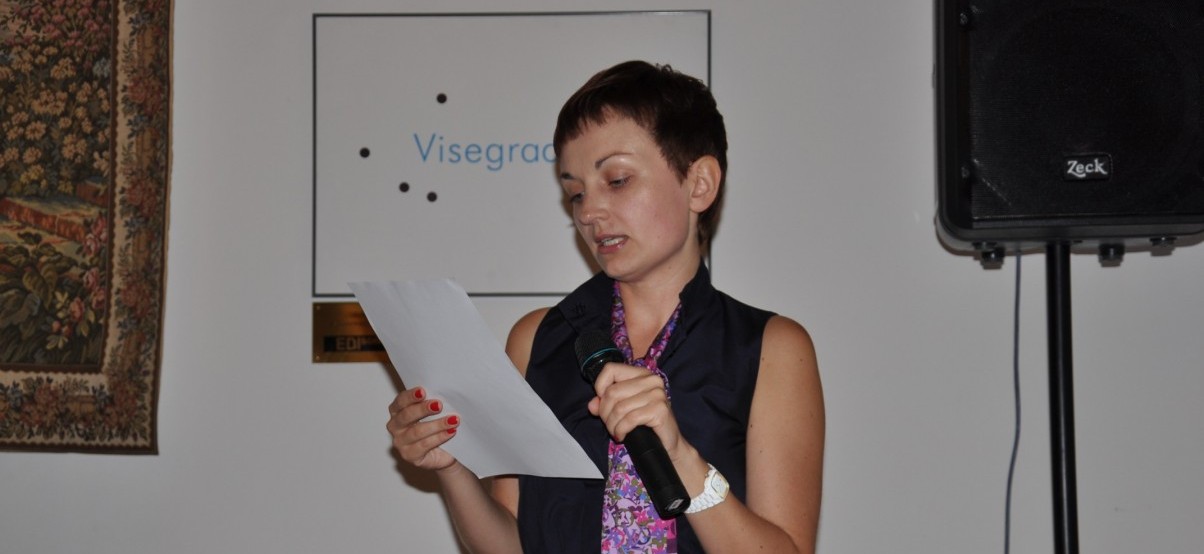
Digital diplomacy was the main topic of the lecture given by Olga Maksymenko that opened the day. It’s an essential part of the statecraft of the 21st century. The contemporary politics cannot ignore the recent developments of the communication technologies. As she said – in the US, the government profiles on facebook and twitter have more followers than the number of the 10 biggest newspapers’ subscriptions. The tools of the digital diplomacy may have many diverse roles. Be it a simple multiplier and amplifier of the government’s informative politics or an instrument of more open decision-making, one can be sure – it’s role is constantly growing.
It affects the international policy making. No longer the diplomacy is an exclusive state elites’ game but a transparent process which whole societies are able to join. The international politics is attended either by governments and regular people. Diplomats or statesmen are just normal people who can be contacted on daily basis – not the abstract rulers who steer the fate of the nation.
Therefore, we have to acknowledge that a modern statecraft besides the traditional skills demands an advanced knowledge on the functioning of the social media. There’s even a new word – twiplomacy. Some of the politicians grasp their power intuitively. While for those who need more practice some special principles, rules or advise are being prepared. Apart from the objective precondition that a statement on twitter must not exceed 140 characters, there are some more sophisticated suggestions as well. The tweet should be personal, sharp and interesting. It’s better when it emphasises author’s opinions or proposed solutions than just describes the world as it is. Twiplomat must be interactive and engaging the audience into debates. Lack of authenticity is always visible for the readers. However, actually one of the common politicians’ mistakes is to delegate their social media management to the other people. The content should be diverse. From some serious political topics to holiday family photos. It’s advised to put links, hashtags, visuals, etc. in tweets.
Finally, it’s worth remembering that the influence in social media shouldn’t be measured by the number of followers as it’s generated by many independent factors. It’s rather popularity than an expression of influence. What really counts in digital diplomacy is listening, communicating, engaging. Digital diplomacy creates a space for a far reaching and inclusive discussion on the international politics – when is used in an appropriate way. Otherwise it may even cause some threats. Instead of a better communication, it becomes an open source for intelligence or at least another evidence that the political class is alienated from society’s everyday problems.
Nevertheless that seems to be a general feature of democracy. It offers many rights and opportunities but at the same time it might free some hidden monsters as well. That was the main topic of Laszlo Rajk’s lecture that took part after the coffee break following Olga Maksymenko’s speech.
At the beginning Laszlo Rajk drew a modified version of the tripartite system of separation of powers. Then he presented his critical opinion on the current political situation in Hungary. As he claimed, the current government undermines the rules on which the democracy has been established. That is why he sees the European Union’s criticism as justified. He also liked the idea of the Copenhagen Commission as a useful body to assess European states’ progress towards the – as he put it - libertarian democracy. Eventually, he highlighted that the current political developments in Hungary are rather a step back, than forward in this process.
Ziemowit Jóźwik












